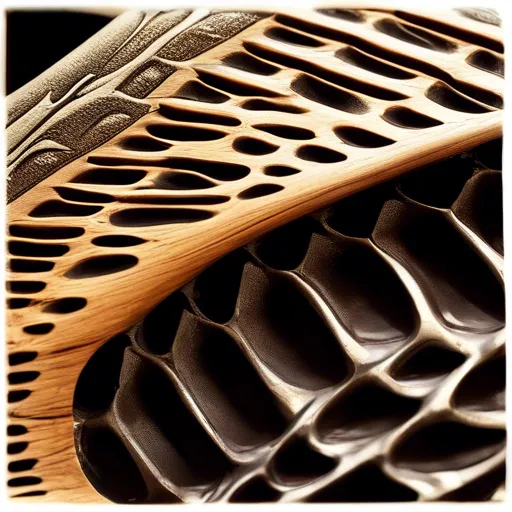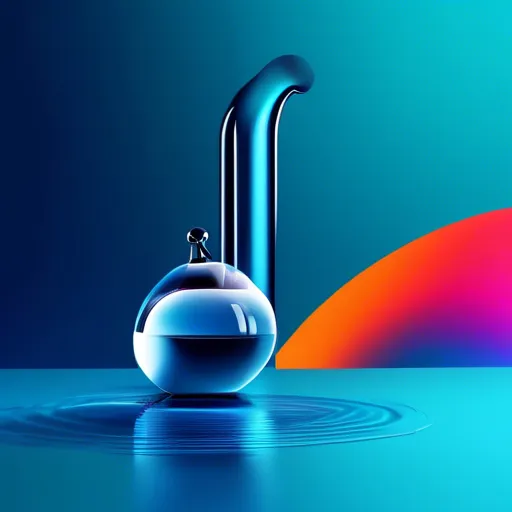Are your water pipes silently conspiring against you? You might not think about them much, but when it comes to your plumbing, ignorance is far from bliss. Lurking silently, scale and sediment play the villain, clogging up your water pipes and wreaking havoc on your home’s water system. Don’t worry, though—it’s time to put on your superhero cape and dive into the world of pipe maintenance.
Ensuring your water pipes are free from scale and sediment not only extends their lifespan but also ensures a healthier living environment. Cleaner pipes mean better water flow, which translates into efficient household operations, from whipping up culinary masterpieces in your kitchen-living room design to watering those ornamental shrubs adorning your garden. Let’s unravel the secrets of keeping your water systems fresh and functional.

Key Features and First Impressions
- Scalability: Advanced solutions cater to both small domestic settings and large industrial systems.
- Safety: Opt for non-toxic cleaners to ensure the longevity of your piping materials.
- Efficiency: Pipe cleaning significantly improves water flow and pressure.
- Cost-effective: Regular cleaning reduces the need for costly repairs and replacements.
Initial encounters with water pipe cleaning can seem daunting, yet the benefits speak volumes. Meeting the challenges posed by scale and sediments head-on with effective and tailored strategies assures homeowners of longer-lasting, more efficient systems.

Technical Details
Design
Modern cleaning systems are designed with efficiency in mind, featuring ergonomic solutions that make them suitable for pipe layouts of all sorts—from the labyrinthine network in large buildings to the simple setups in residential homes.
Performance
Performance-wise, these solutions offer quick removal of even the toughest mineral build-up, promising an uninterrupted flow of pure water. The advanced agents in most cleaners target scale and sediment with precision.
Usability
With user-friendly instructions and easy-to-follow procedures, maintaining the health of your pipes doesn’t require you to be a plumbing expert.

Side-by-Side Comparison
| Aspect | Option A | Option B |
|---|---|---|
| Durability | Improves with regular maintenance | Prone to damage if left unchecked |
| Ease of Use | Simple, user-friendly applications | Complex, often requiring professional help |
| Design | Ergonomic and eco-friendly | Conventional and less sustainable |
| Operating Costs | Lower long-term costs | Higher due to frequent repairs |
Practical Tips
- Schedule regular inspections to catch scale and sediment before they become problematic.
- Consider using water softeners to prevent scale build-up as a proactive measure.
- Flush pipes periodically with vinegar to break down mineral deposits.
- Invest in pipe-cleaning technologies that are specifically designed for your water system.
The buildup of scale and sediment can reduce water flow by up to 50%, significantly increasing energy costs and putting strain on your plumbing system.

In conclusion, maintaining clean water pipes is no longer an optional task—it’s a necessity. With the techniques outlined above, you’ll not only extend the life of your plumbing but also enhance the quality of your household water. By taking these steps, you contribute to a safer, more efficient home environment and significantly cut down on long-term costs.
Looking ahead, staying on top of pipe maintenance could transform how you use water in your daily routine, just like how integrating modern design elements in compact living spaces is reshaping our approach to home design. Remember, a proactive approach today can save you from a plumbing drama tomorrow.
“`html
FAQ
Why clean water pipes?
Cleaning water pipes helps remove scale and sediment, extending their lifespan.
What causes scale build-up?
Scale builds up due to minerals like calcium and magnesium in water.
How often should pipes be cleaned?
It’s recommended to clean pipes annually or as needed depending on usage.
Can sediment affect water systems?
Yes, sediment can clog pipes and reduce the efficiency of water systems.
“`